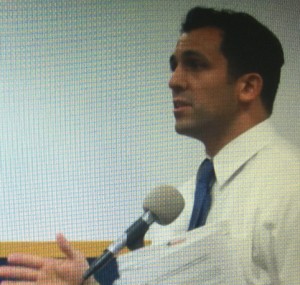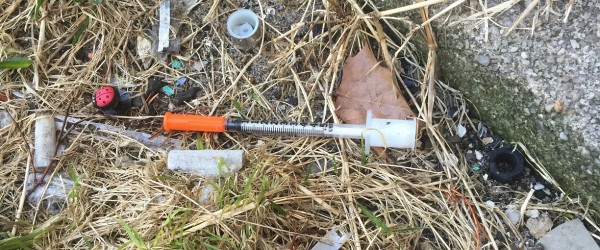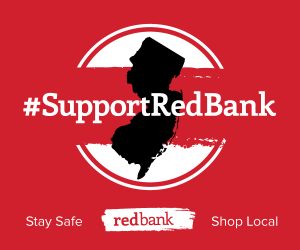Help Not Handcuffs aims for harm reduction strategies
Thompson: why aren’t we considering these proven drug reduction models
Help Not Handcuffs founder Randy Thompson is asking the questions:
“With needles on our streets and beaches, three times the national overdose death rate and first responders running in every direction to reverse overdoses, why aren’t we considering these proven models of harm reduction strategies?”
Help Not Handcuffs’ mission is to eliminate failed drug criminalization policies through community education and engagement.
In an e-mail conversation, the Asbury Park single father outlined how those strategies would help mitigate the current heroin pandemic facing not only the city and state but many suburban communities across the nation.
“There are several harm reduction models which don’t promote drug use but address and often eliminate the harms of existing injection drug use,” Thompson said. “Syringe Access Programs, Supervised Injection Facilities and Poly-Morphine Programs all have decade’s long proven success records.”
According to Thompson, the uptick in the visibly unsafe discarding of used syringes and soaring overdose deaths are all the more reason to implement harm reduction strategies.
“It’s a bit of a mystery but with everyone screaming ‘Heroin/Opiate Epidemic,’ especially with the understanding that criminalization and forced treatment polices have failed, how are these tools not part of the solution,” Thompson said. “Harm reduction strategies don’t exist or worse, they sit inactive, as is the case of Asbury Park’s Syringe Access Program [SAP].”
The New Jersey Blood-Borne Disease Harm Reduction Act, passed in 2006, established the program in six municipalities but Asbury Park is the only municipality that did not activate its program, Thompson said.
SAPs are meant to reduce the risk of blood borne disease transmission by providing safe disposal for used syringes so they don’t end up on the street, he said. The program also links individuals with recovery services.
Thompson points to Maryland’s recently introduced package of bills to decriminalize all drugs, thereby allowing drug consumption rooms known as Supervised Injection Facilities [SIF] and creation of the Poly-Morphine Program known as Heroin Assisted Treatment [HAT].
SIFs have been in existence since the 1980s in over 40 cities, Thompson said. Vancouver’s InSite program has had over 2 million visits and was successful in having zero drug overdose deaths, he said.
“The National Institute of Health reaffirms that SIFs are effective in taking nuisance public drug use that already takes place and moves it into a medicalized environment,” Thompson said. “SIFs are highly effective in reducing injection risks, link participants to health services, detox and treatment.”
The Poly-Morphine/HAT programs are aimed at individuals who have a heroin use disorder and are resistant to regular drug treatment, Thompson said. The program works to remove on street heroin use and improve health outcomes.
—————————————————————————
Follow the Asbury Park Sun on Facebook, Twitter and Instagram.
The Asbury Park Sun is affiliated with the triCityNews newspaper.













